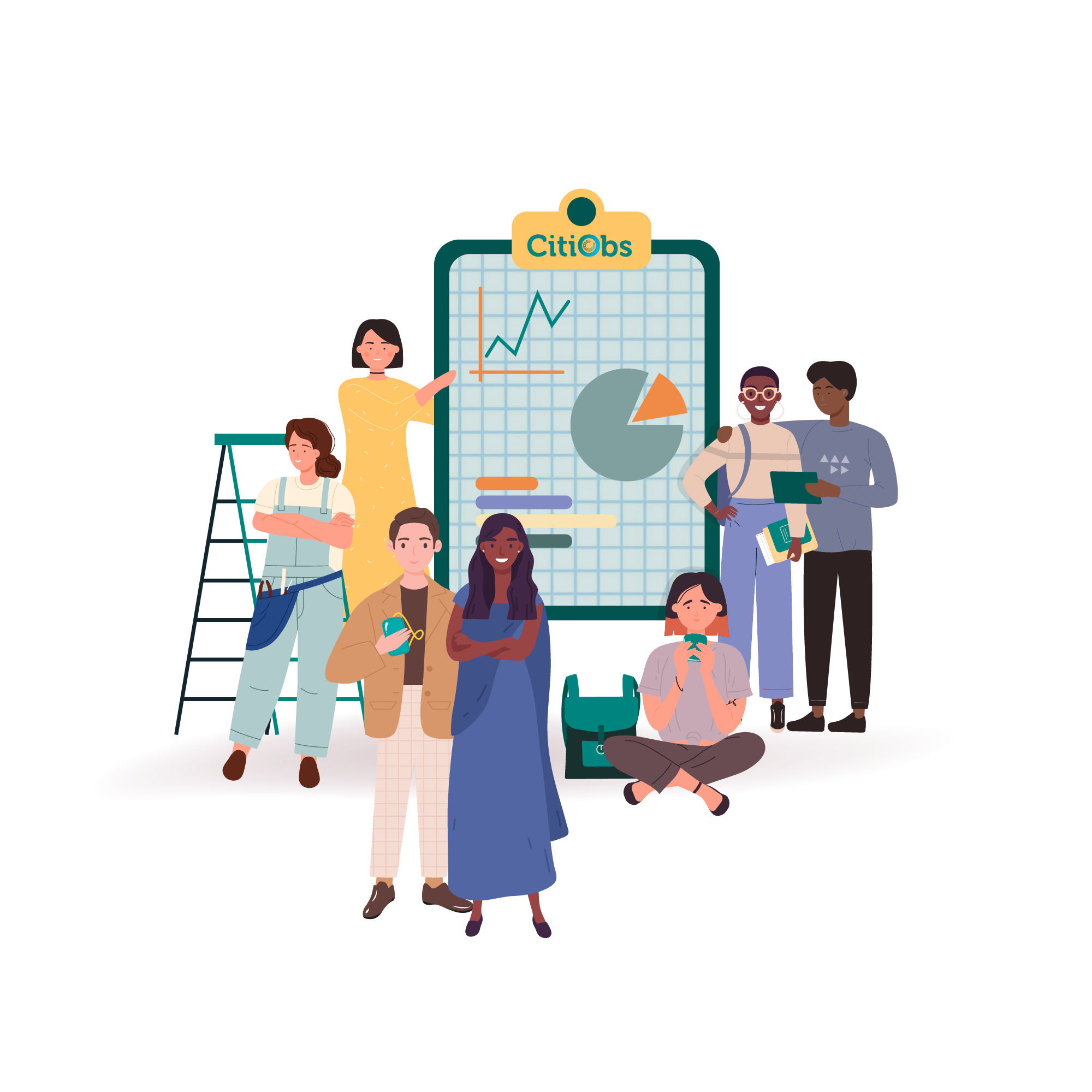Explore guidance on reaching and including diverse communities with the Leave-No-One-Behind Toolkit, strengthen stakeholder collaboration and resolve conflicts through the Citizen Observatory Participation Dynamics Toolkit, and access tools for organizing impactful community-led environmental actions with the Citizen-Led Action Toolkit. For those interested in environmental monitoring, the Environmental Monitoring Toolkit offers practical advice for utilizing environmental sensing devices effectively, ensuring data quality, interoperability, and accessibility.
Looking to broaden your reach and engage a more diverse community, particularly those most affected by the issues your Citizen Observatory is addressing?
The Leave-No-One-Behind (LNOB) Toolkit is designed to help Citizen Observatories think through diversity and inclusion in a way that’s relevant to their specific locations and the issues they are working on. This toolkit pulls together practical guidance and resources from across Europe’s citizen science community to help Citizen Observatories make their initiatives more inclusive and representative of all stakeholders.
The LNOB Toolkit will help you to:








Want to build lasting, trust-based partnerships within your Citizen Observatory that keep everyone focused on shared goals and help ensure your data is put to use?
The Citizen Observatory Participation Dynamics Toolkit is here to support your Citizen Observatory in building and sustaining strong stakeholder relationships. It offers practical resources to address conflicts, strengthen cooperation, and foster trust across the groups involved.
The Citizen Observatory Participation Dynamics Toolkit will help you to:







Looking to support creative, citizen-led actions within your Citizen Observatory?
The Citizen-Led Action Toolkit provides practical tools for residents and communities who are eager to make a difference in environmental protection. It offers a variety of co-creation resources to help plan, organize, and carry out impactful citizen-led actions, often in collaboration with artists and creatives, to inspire meaningful change.
The Citizen-Led Action Toolkit will help you to:







Interested in using low-cost sensors but need guidance on their technical setup, usage, and data handling?
The Environmental Monitoring Toolkit offers practical support for individuals and organizations looking to implement environmental monitoring through affordable sensing devices. It covers essentials like choosing the right sensor, managing data quality, and ensuring data interoperability and accessibility.
The Environmental Monitoring Toolkit will help you to:





Want to create a new Citizen Observatory in your area?
The Creating Successful and Sustainable COs toolkit is borrowed from the WeObserve Cookbook, and it is designed as a guide to help Citizen Observatory practitioners access existing resources that can help them in setting up and/or running a Citizen Observatory.
The Creating Successful and Sustainable COs Toolkit will help you to:





CitiObs is developing a robust technical architecture to support citizen observatories in collecting, processing, and sharing environmental data in a transparent and interoperable way. The architecture integrates sensor technologies, open data platforms, and standardised protocols to ensure reliable data flows from collection to visualization, empowering communities and decision-makers alike. Here is more:






